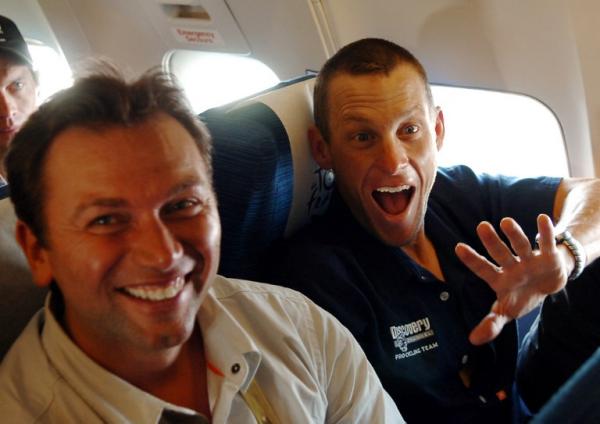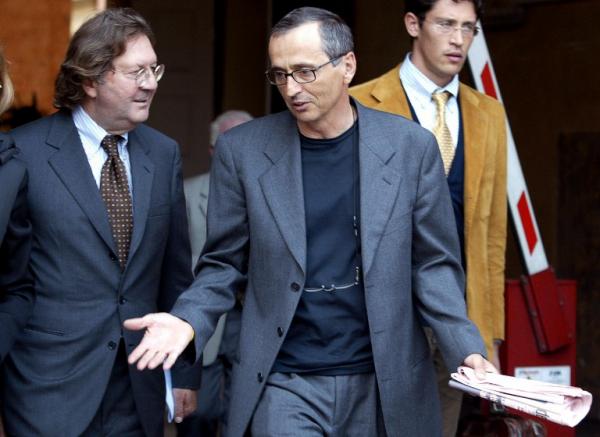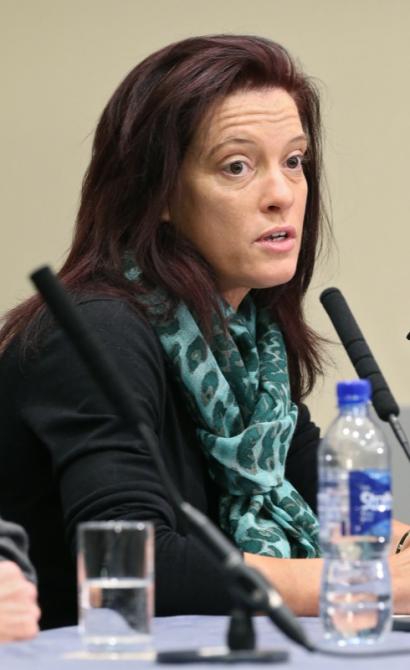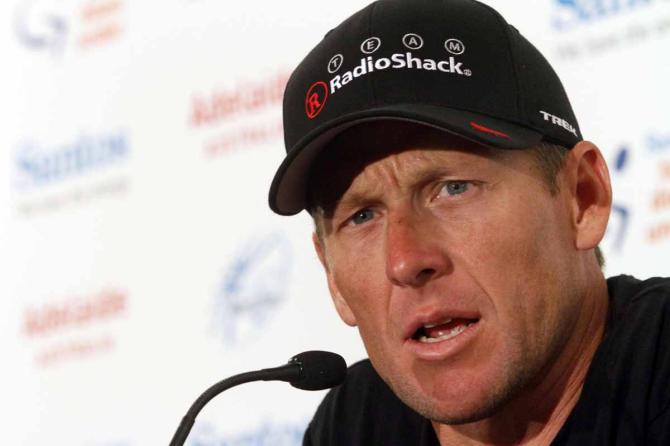Report: Armstrong names names under oath
Comments last November made public by Landis' Attorneys




On November 12 of last year Lance Armstrong provided the names and roles of people who had knowledge of, or were involved in his doping practices having been compelled to respond to questions under oath in a lawsuit.
USA Cycling denies Weisel influenced anti-doping policies
Armstrong claims Thomas Weisel knew about USPS doping
Weisel: Armstrong allegations not factual
Lance Armstrong is lying, claims Verbruggen
Former Armstrong soigneur has more evidence of UCI complicity
Judge to rule on re-opening Armstrong, SCA Promotions case
Froome wants CIRC investigation to put Armstrong Era "to bed"
Armstrong secures a delay in the SCA arbitration case
What did USA Cycling know of doping before Armstrong investigation?
Since his confessing to Oprah Winfrey in January 2013, Armstrong has not provided any further information on who knew about his doping practices although has stated he would partake in what was originally known as a 'Truth and Reconciliation' run by the UCI which is now known as the Cycling Independent Reform Commission (CIRC).
USA Today report that they obtained Armstrong's answers which are now only being made public after being filed in a federal court by an attorney for former cycling teammate Floyd Landis as part of another lawsuit.
Armstrong was asked to answer 16 questions including who had provided him with performance-enhancing drugs (PEDs) during his cycling career. Armstrong responded by stating that trainer Pepi Marti, Dr Pedro Celaya, Dr Luis Garcia del Moral and Dr Michele Ferrari, had all done so.
When asked who delivered the drugs, Armstrong named further names including masseuse Emma O'Reilly, bike mechanic Julien de Vriese and the man previously known only as "Motoman," Philippe Maire.
This is the first time that Armstrong has publicly mentioned people who have at various times denied involvement in, or knowledge of doping by Armstrong and his US Postal team.
Team manager Johan Bruyneel has insisted his innocence and along with Celaya and Marti opted to take USADA case against them to an arbitration hearing. Armstrong, Ferrari and del Moral chose not to contest the charges.
Get The Leadout Newsletter
The latest race content, interviews, features, reviews and expert buying guides, direct to your inbox!
"Johan Bruyneel participated in or assisted with Armstrong's use of PEDs, and knew of that use through their conversations and acts," Armstrong said in the court document.
Armstrong also admitted that he generally paid for the substances he used but couldn't equivocally state whether other persons had financially contributed to his use of banned substances. "There may have been additional persons, but Armstrong does not recall any others at this time," Armstrong said.
On the use of drugs, Armstrong stated that he was largely in control of his regime. "Armstrong would typically supervise his own use of PEDs, but on certain occasions, the use of PEDs was supervised by Dr Celaya, Dr del Moral, or Dr Ferrari."
From as early as 1995, Armstrong stated that he had used EPO at the Tour de France, although he denied that he cheating during his comeback years in 2009 and 2010.
Armstrong was compelled to provide written answers last November in a lawsuit filed against him by Acceptance Insurance, who were seeking to recover $3 million from him for bonuses paid to him for winning the Tour de France from 1999 to 2001.
One day before he was scheduled to give a deposition in that case in November, Armstrong reached an undisclosed settlement to end it and cancel the deposition.
Attorneys for former teammate Floyd Landis filed Armstrong's answers as an exhibit in Landis' separate federal whistleblower lawsuit against Armstrong.
Landis' attorney filed the answers in support of his motion to compel discovery materials from Thomas Weisel, the financier of Armstrong's U.S. Postal Service cycling team. Armstrong stated that he believed Weisel was "aware of doping on the USPS team." Weisel has strongly denied the allegation.
When asked to name every person or entity he has paid to keep his doping secret, Armstrong denied to answers and stated:
"Armstrong has not paid or offered to pay someone to keep his or others' doping a secret," he stated.
"However, Armstrong has, on occasion, provided benefits or made contributions to many people and institutions, some of whom may have been aware of, or suspected Armstrong's use of performance-enhancing drugs and banned methods. Armstrong never provided any such benefits or contributions with the intent for it to be a payoff to keep doping a secret."